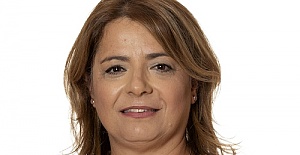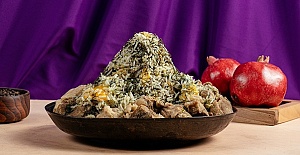The most popular treatment these days is drinking and bathing in salt-water. "I drank it yesterday and had a bath from water soaked with salt," Raliat Abegbe, a resident of Mushin in the commercial city of Lagos, where three Ebola deaths have been registered to date, told Anadolu Agency. Abegbe, in her 80s, said she took the salt-water bath after hearing her neighbors talk about it. "We heard it is a very deadly disease; my neighbors were already taking precautions to prevent them from getting it. So I did the same," she said. The octogenarian is not alone. "At least four relatives have called from villages asking me to drink salt water and then bathe with it," Solomon Aderibigbe, a 40-year-old bricklayer, told AA. "They said it cures Ebola," he said. "They called me because they heard of the outbreak in Lagos." Nigeria has officially registered a total of three Ebola deaths and ten confirmed infections, all in Lagos, the country's commercial nerve center and home to some 20 million people.
Ebola, a contagious disease for which there is no known treatment or cure, is believed to have arrived in Nigeria through Patrick Sawyer, an infected Liberian who came to the country in July.
Sawyer came showing symptoms of the virus and was admitted to a Lagos hospital, where he later succumbed to the disease.
The country's two other fatalities, including a nurse, had come in contact with the Liberian.
Authorities insist the virus remains restricted to Lagos, though there are widespread fears it will spread.
The tropical fever, which first appeared in 1976 in Sudan and the Democratic Republic of Congo, can be transmitted to humans from wild animals.
It also reportedly spreads through contact with the body fluids of infected persons or of those who have died of the disease.
On BlackBerry messenger, whatssap and other short message services, Nigerians have drawn each other's attention to the "efficacy" of salt water in preventing infection.
"My mother prepared it [salt water] for us and we all drank it," Sharafudeen Adedo, a 16-year-old secondary school student, told AA.
"She told us her aunts had told her the solution works to prevent Ebola," he added.
Arinola Giwa, a retired banker, tends to suffer from hypertension, which can be triggered by excessive salt intake.
She, therefore, opted for the salt-water bath instead.
"I did have a bath with salt water last Friday," she told AA.
But experts warn that excessive consumption of salt could trigger another national health emergency. "Anyone who joins the bandwagon of consuming salt water or bathing with it risks a sudden rise in blood pressure," Hassan Ekeinde, a medical doctor, told AA.
"This could lead to untimely death," he warned.
Aware of the risk, the authorities have rolled out a massive awareness program aimed at stopping people from trying it.
"There is no cure yet for Ebola," says a radio message by the Lagos state government broadcast in several local languages.
"Ignore the rumor that salt water or anything prevents or cures it," it advises listeners.
"All that is required for now for protection is to ensure cleanliness," the message goes on. "Wash your hands always. Wash your fruit."
It is the first time Nigeria has suffered an Ebola outbreak since the discovery of the virus in 1976.
It has declared the epidemic a national health emergency, putting measures in place to help curb its spread.



 Advice for Enfield residents ahead of the General Election
Advice for Enfield residents ahead of the General Election Sunak promises tax cuts, economic stability, Conservative Party election manifesto
Sunak promises tax cuts, economic stability, Conservative Party election manifesto Ertan Karpazli, an independent MP candidate for the Enfield North constituency
Ertan Karpazli, an independent MP candidate for the Enfield North constituency Rishi Sunak announces a general election in a statement outside Downing Street
Rishi Sunak announces a general election in a statement outside Downing Street Residents of Spanish island of Mallorca launch initiative to thank tourists amid protests over mass tourism
Residents of Spanish island of Mallorca launch initiative to thank tourists amid protests over mass tourism Srebrenica Remembered, Lessons for Justice and Peace! YEE London held a reflective event
Srebrenica Remembered, Lessons for Justice and Peace! YEE London held a reflective event British Premier Keir Starmer to reset UK-EU relations with high-profile meetings
British Premier Keir Starmer to reset UK-EU relations with high-profile meetings Voters head to polls for UK general election
Voters head to polls for UK general election The Swiss official will take charge of the match between Real Madrid and Atalanta in Warsaw
The Swiss official will take charge of the match between Real Madrid and Atalanta in Warsaw Applications are now open for Walking and Cycling Grants London until 9 September 2024
Applications are now open for Walking and Cycling Grants London until 9 September 2024  Two Circles also appointed as exclusive media sales agency for UEFA Women’s Champions League
Two Circles also appointed as exclusive media sales agency for UEFA Women’s Champions League  England manager Gareth Southgate has resigned two days after defeat by Spain
England manager Gareth Southgate has resigned two days after defeat by Spain Joyce and Snell's planning application gets stamp of approval
Joyce and Snell's planning application gets stamp of approval The amount of bounce back loans fully repaid is just %13
The amount of bounce back loans fully repaid is just %13 Petrol prices higher than they should be, says RAC
Petrol prices higher than they should be, says RAC UEFA and Mastercard renew UEFA Champions League partnership
UEFA and Mastercard renew UEFA Champions League partnership




















